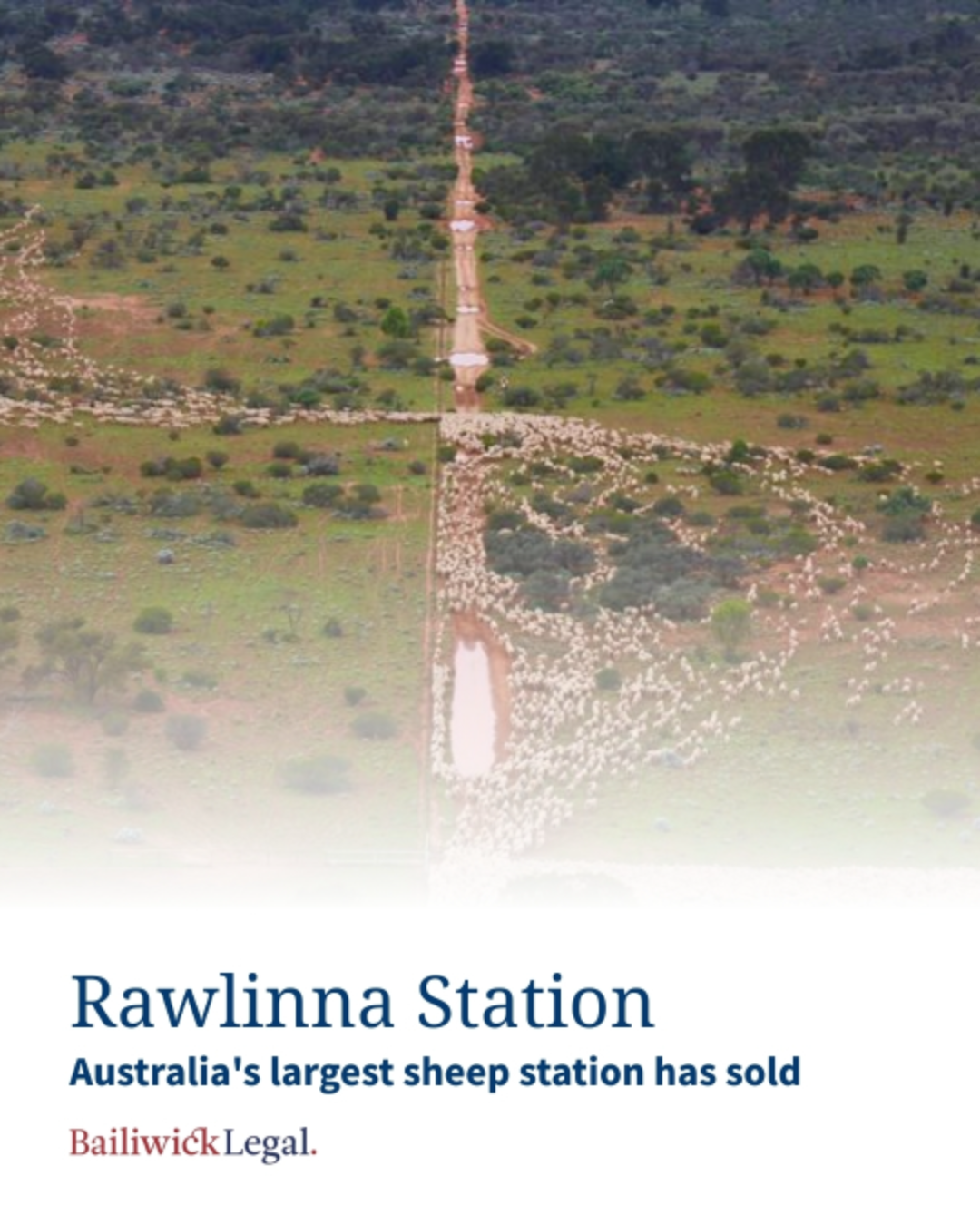Wills, Estates and Beneficiary Rights – Part 2: Beneficiary rights
February 19, 2026
Author name
Part one of this series looked at beneficiary rights in relation to Wills. In part 2 of the series we will focus on disputes in relation to estates.
Here in Western Australia, disputes relating to the division of assets in an estate are governed by the Family Provision Act WA
(“the Act”).
Who can claim for further provision in WA?
The Act sets out the class of persons who are entitled to bring a claim against a deceased person’s estate. This class is limited to:
- Spouses (including a de facto partner)
- former spouses or de facto partners if they were receiving (or entitled to) maintenance from the deceased
- children
- step-children, in some circumstances
- grandchildren, in some circumstances
- the deceased’s parents
How does the Court determine whether further provision ought to be made for a claimant?
If you fall within the class of potential claimants, then the Court may change the disposition of a deceased’s estate to make further provision for you. In determining whether a change ought to be made, the Court must carry out a two stage process:
- The first stage involves determining whether the disposition of the deceased estate by Will makes adequate provision from the estate for the proper maintenance, support, education or advancement in the life of the claimant, and
- If the Court determines that adequate provision has not been made for the claimant, then the Court may order such provision as the Court thinks fit to be made out of the deceased’s estate for the proper maintenance, support, education or advancement in life of the claimant.
In order for the Court to make a determination that inadequate provision has been made for a claimant, the claimant needs to establish that they have a financial need for further provision. The more financially well-off a claimant is, the less likely it is they will be able to satisfy the Court that provision ought to be made for them.
What is the process for commencing an FPA Claim?
If you believe that inadequate provision has been made for you from an estate, then you have 6 months from the issue of a Grant of Probate in which to commence an action in the Supreme Court. The Court does however have the discretion to extend this time limit in special circumstances.
The process is usually commenced by the claimant filing an Originating Summons (this is akin to an application form) and a first affidavit.
The originating summons must set out what changes the claimant would like the Court to make to the Will of a deceased, or in the case of an intestacy (dying without a Will), to the statutory formula dividing the deceased’s estate. The Court will no longer accept applications which simply ask the Court to make “orders which the Court thinks fit and proper”.
The Court requires claimants to join all affected parties to the application. This means that if a claimant is asking the Court to alter a Will so that a property which is due to pass to person X under the Will instead passes to the claimant, then person X must be joined to the proceedings.
As part of a claimant’s application, they are also required to swear and submit a first affidavit to the Court which states matters such as:
- Confirmation of their eligibility to bring a claim under the Act (i.e. confirmation as to which class of beneficiaries they belong to)
- Their income, financial resources and expenditure
- Their assets and liabilities (including details of values and how these values have been determined)
- Their state of health
- Where a claimant has a spouse, then (B) to (D) above in relation to the spouse too
Most Family Provision Act claims settle at the first Court ordered mediation. This means that very few matters actually proceed to trial.
How are legal costs in FPA claims dealt with?
The legal costs of a claimant will not automatically be paid from the estate.
Ordinarily, where a matter settles as a mediation, each party bears their own legal costs.
If the matter proceeds to trial, the Court has the discretion to award costs in favour of a successful claimant. However, where the claimant is unsuccessful, the Court may order the claimant to pay their own legal costs ans also those of the other parties’.
Summary
If you are concerned that:
- inadequate provision has been made for you under a deceased person’s Will,
- inadequate provision has been made for you on an intestacy (i.e. because the deceased person died without a Will),
- you have not been included as a beneficiary under a Will, or
- you need assistance in defending your entitlements under a Will or intestacy,
then please contact us at 9321 5451 to discuss your rights.
For further information about our legal services, please visit our website: https://www.bailiwicklegal.com.au/
The above information is a summary and overview of the matters discussed. This publication does not constitute legal advice and you should seek legal or other professional advice before acting or relying on any of the content.

Bailiwick Legal has been honoured to support Forever Wild over the past few years as they delivered one of the most significant conservation land acquisition programs undertaken in Western Australia. Our team assisted Forever Wild with the strategic purchase of four pastoral stations, Narndee , Boodanoo , Meeline and Challa , transactions that now connect three State Reserves and protect more than 12,000 square kilometres of land. To put that scale into perspective, the combined area is approximately five times the size of the ACT and nearly one-fifth the size of Tasmania . Navigating complexity at scale These were not straightforward property transactions. Each acquisition involved: Multiple pastoral leases Layered regulatory and approval pathways Significant operational and on-ground assets Numerous stakeholders across government, industry and land management Our role was to guide Forever Wild through this complexity with clarity, precision and confidence, ensuring each transaction progressed efficiently while managing risk and safeguarding long-term objectives. “ Forever Wild is creating a world-leading model for nature funding that demonstrates we can manage viable, working pastoral stations whilst also restoring and protecting local ecological flora and fauna, and engaging and supporting Indigenous people and local communities. Complex & challenging, but this initiative could literally change the world .” Jessica Brunner - Director, Bailiwick Legal A growing and evolving legal landscape Large-scale conservation acquisitions sit within an emerging and increasingly complex legal field , intersecting land tenure, pastoral regulation, environmental frameworks and commercial considerations. These matters demand a deep understanding of both the legal mechanics and the practical realities of operating in regional and remote Australia. Our team’s experience in agribusiness, pastoral land transactions and regulatory approvals allowed us to support Forever Wild at every stage, from strategic structuring through to completion. Proud to support leadership in nature finance Forever Wild is widely recognised as an industry leader and a steadfast advocate for nature finance initiatives , helping pave the way for greater accessibility and innovation in conservation funding and land stewardship. We are proud to have contributed our relationships, expertise and practical legal insight to help Forever Wild achieve its vision, and to have played a role, however small, in shaping a groundbreaking future for conservation in Australia. At Bailiwick Legal, we value the opportunity to work alongside organisations that are thinking long-term, acting boldly, and creating outcomes that extend well beyond the transaction itself. For assistance with all of your agribusiness needs, contact Bailiwick Legal on 08 9321 5451 or email office@bailiwicklegal.com.au For further information about our legal services, please visit our website: https://www.bailiwicklegal.com.au The above information is a summary and overview of the matters discussed. This publication does not constitute legal advice and you should seek legal or other professional advice before acting or relying on any of the content.

Bailiwick Legal Advises on Landmark Acquisition of Rawlinna Station by Consolidated Pastoral Company
Bailiwick Legal is proud to have acted for Consolidated Pastoral Company (CPC) in its successful acquisition of Rawlinna Station , Australia’s largest sheep station, located on the remote Nullarbor Plain in Western Australia. Spanning over 1 million hectares and running approximately 30,000 sheep , Rawlinna is an iconic pastoral asset with a rich legacy, having been held by the MacLachlan family’s Jumbuck Pastoral Company since its establishment in 1962. The sale marks the first change of ownership in over six decades and was finalised following formal approval from the Western Australian Government for the transfer of the pastoral leases. This transaction involved navigating: The transfer of three separate pastoral leases Coordination across multiple vendor entities Consideration of livestock and operating assets Fulfilment of regulatory and compliance requirements, including WA lease approval processes Bailiwick Legal is a boutique agricultural and regional law firm , proudly based in Perth and Bridgetown, Western Australia. Our role in this acquisition demonstrates that deep sector knowledge, local insight, and personalised legal support are crucial for agribusiness clients managing complex, high-value transactions. Our team, led by our regionally-based solicitor, Matilda Lloyd, provided end-to-end legal and strategic support, including: Due diligence on land tenure and operating assets Contract negotiation and preparation Advice on regulatory approvals and compliance Strategic coordination with CPC’s internal and external stakeholders to ensure a smooth and timely settlement We are honoured to have supported CPC in this milestone acquisition and look forward to watching Rawlinna’s next chapter unfolds. At Bailiwick Legal, we believe that regional expertise, deep industry knowledge, and relationship-based service remain essential to agribusiness success, no matter the scale. Congratulations to all parties involved, including the MacLachlan family, whose stewardship of Rawlinna leaves a lasting legacy in Australian agriculture. – The Bailiwick Legal Team Working alongside agribusinesses to grow, transition, and thrive . For assistance with all of your agribusiness needs, contact Bailiwick Legal on 08 9321 5451 or email office@bailiwicklegal.com.au By Matilda Lloyd (Associate) For further information about our legal services, please visit our website: https://www.bailiwicklegal.com.au The above information is a summary and overview of the matters discussed. This publication does not constitute legal advice and you should seek legal or other professional advice before acting or relying on any of the content.











